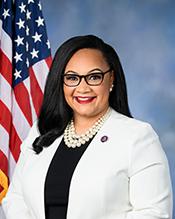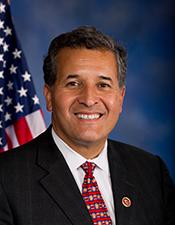0
0
0
Universal School Meals Program Act of 2023
3/14/2024, 4:05 AM
Summary of Bill HR 3204
Bill 118 HR 3204, also known as the Universal School Meals Program Act of 2023, aims to provide free breakfast, lunch, and dinner to all students in public schools across the United States. The bill seeks to address food insecurity among students and ensure that all children have access to nutritious meals throughout the school day.
Under this legislation, the federal government would allocate funding to cover the cost of meals for all students, regardless of their family's income level. This would eliminate the need for families to fill out applications for free or reduced-price meals, streamlining the process and reducing stigma for students who rely on school meals for their nutrition.
Proponents of the bill argue that universal school meals would help improve academic performance, reduce absenteeism, and promote overall health and well-being among students. They also believe that providing meals to all students would help address disparities in access to nutritious food and alleviate financial burdens on families. Opponents of the bill raise concerns about the cost of implementing a universal school meals program and the potential for waste and abuse. They argue that targeting resources to students in need would be a more efficient and cost-effective approach to addressing food insecurity. Overall, the Universal School Meals Program Act of 2023 represents a significant effort to ensure that all students have access to the nutrition they need to succeed in school. The bill is currently under consideration in Congress, where lawmakers will debate its merits and potential impact on students, families, and schools across the country.
Under this legislation, the federal government would allocate funding to cover the cost of meals for all students, regardless of their family's income level. This would eliminate the need for families to fill out applications for free or reduced-price meals, streamlining the process and reducing stigma for students who rely on school meals for their nutrition.
Proponents of the bill argue that universal school meals would help improve academic performance, reduce absenteeism, and promote overall health and well-being among students. They also believe that providing meals to all students would help address disparities in access to nutritious food and alleviate financial burdens on families. Opponents of the bill raise concerns about the cost of implementing a universal school meals program and the potential for waste and abuse. They argue that targeting resources to students in need would be a more efficient and cost-effective approach to addressing food insecurity. Overall, the Universal School Meals Program Act of 2023 represents a significant effort to ensure that all students have access to the nutrition they need to succeed in school. The bill is currently under consideration in Congress, where lawmakers will debate its merits and potential impact on students, families, and schools across the country.
Read the Full Bill
Current Status of Bill HR 3204
Bill HR 3204 is currently in the status of Bill Introduced since May 11, 2023. Bill HR 3204 was introduced during Congress 118 and was introduced to the House on May 11, 2023. Bill HR 3204's most recent activity was Referred to the Subcommittee on Nutrition, Foreign Agriculture, and Horticulture. as of June 1, 2023
Bipartisan Support of Bill HR 3204
Total Number of Sponsors
1Democrat Sponsors
1Republican Sponsors
0Unaffiliated Sponsors
0Total Number of Cosponsors
200Democrat Cosponsors
200Republican Cosponsors
0Unaffiliated Cosponsors
0Policy Area and Potential Impact of Bill HR 3204
Primary Policy Focus
Agriculture and FoodPotential Impact Areas
- Adoption and foster care
- Census and government statistics
- Child care and development
- Child health
- Congressional oversight
- Correctional facilities and imprisonment
- Debt collection
- Detention of persons
- Elementary and secondary education
- Employment and training programs
- Food assistance and relief
- Food supply, safety, and labeling
- Fruit and vegetables
- Homelessness and emergency shelter
- Inflation and prices
- Juvenile crime and gang violence
- Military personnel and dependents
- Nutrition and diet
- Poverty and welfare assistance
- Right of privacy
- State and local finance
- State and local government operations
Alternate Title(s) of Bill HR 3204
Universal School Meals Program Act of 2023
Universal School Meals Program Act of 2023
To amend the Child Nutrition Act of 1966 and the Richard B. Russell National School Lunch Act to make breakfasts and lunches free for all children, and for other purposes.
Comments
Sponsors and Cosponsors of HR 3204
Latest Bills
Electric Supply Chain Act
Bill HR 3638December 12, 2025
National Defense Authorization Act for Fiscal Year 2026
Bill S 1071December 12, 2025
PERMIT Act
Bill HR 3898December 12, 2025
State Planning for Reliability and Affordability Act
Bill HR 3628December 12, 2025
Improving Interagency Coordination for Pipeline Reviews Act
Bill HR 3668December 12, 2025
Increasing Investor Opportunities Act
Bill HR 3383December 12, 2025
Preventing Elected Leaders from Owning Securities and Investments (PELOSI) Act
Bill S 1498December 11, 2025
Holocaust Expropriated Art Recovery Act of 2025
Bill S 1884December 11, 2025
Enduring Justice for Victims of Trafficking Act
Bill S 2584December 11, 2025
SPEED Act
Bill HR 4776December 11, 2025
Universal School Meals Program Act of 2023
Bill S 1568March 11, 2024





